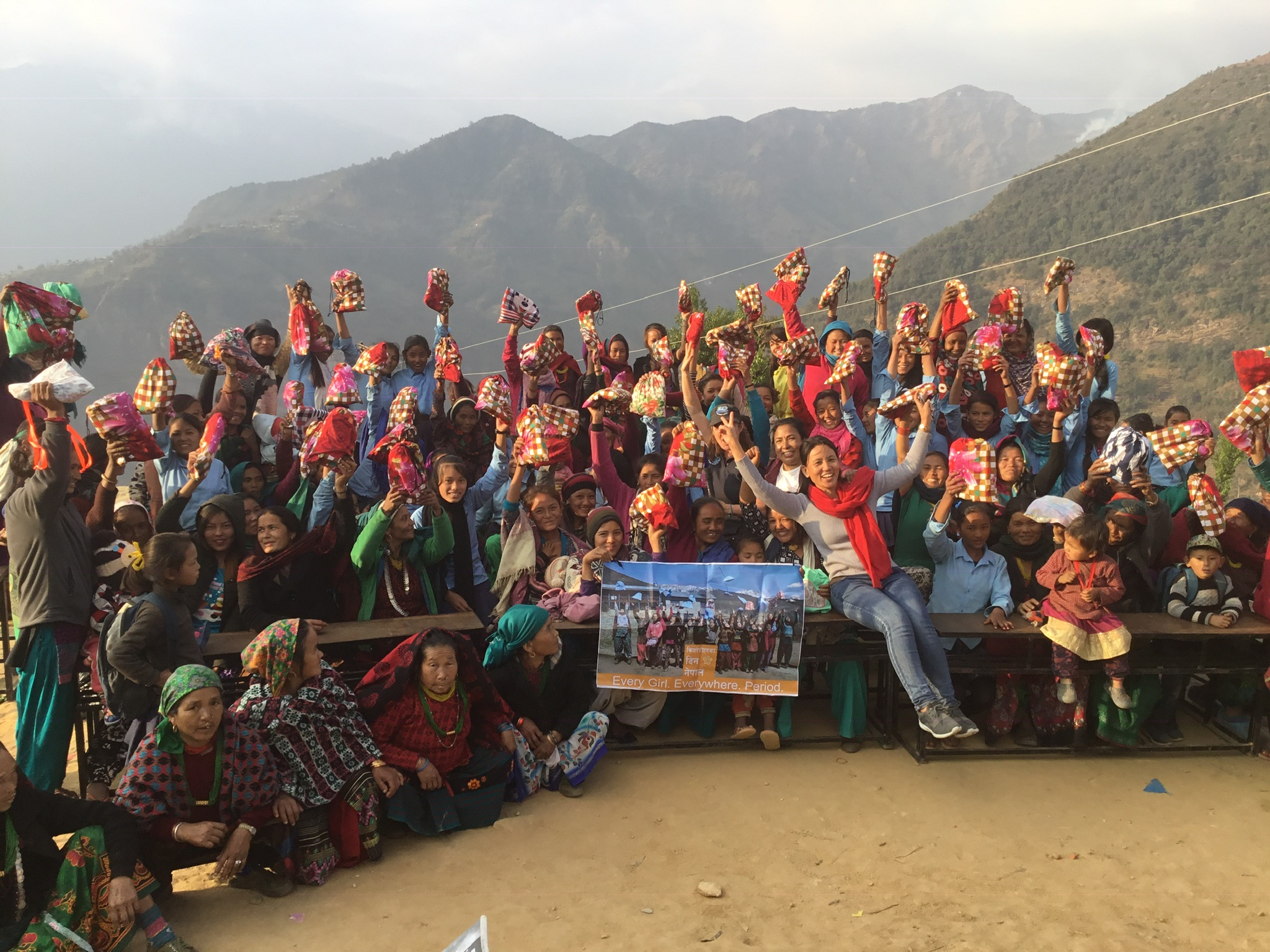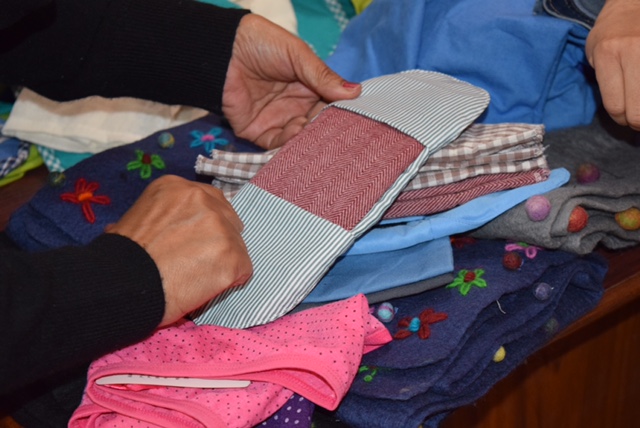Posted by:


WOMEN’S PROJECT UPDATE 2019
So here is an update on our Women and Girls’ Menstrual Health Project - and there’s a lot to catch up on!
What have we done so far?
In December 2018 Pauline Sanderson and Sue Adlam-Hill spent over 2 weeks visiting Nepal to launch the IYH menstrual health workshops. During our visit over 350 women and girls attended 5 workshops, receiving 2 hours of education and training before being presented with a pack containing washable sanitary kits.
It was an amazing experience to see women and girls arriving on foot from miles around for the workshops, queuing to get into the classrooms and participating in 2 intensive hours of learning about puberty, reproductive systems, the menstrual cycle, safe choices, reducing violence and trafficking.
We worked with the Days for Girls Nepal team who provided qualified and skilled trainers for the workshops, and whose washable sanitary packs are globally recognised as high quality, practical and designed with dignity in mind. Days for Girls is an American based charity that is a thought-leader on practical solutions to period poverty, particularly in developing countries, and they have proven themselves to be an excellent partner for IYH.
None of this would have been possible without the support of our local NGO, The Mandala Organisation, transport and logistics. In particular we are grateful to Lamin who helped with translation, community liaison and just getting the whole show on the road!
Why are we doing this?
Through our project we are providing school girls with practical and cost-effective sanitary kits that they can use during their periods – and we hope that this will help them continue their normal daily life, including attending school. This project is 100% connected to our focus on education - getting kids to school and keeping them there as long as we can.
Period-poverty is a real issue in many parts of the world, and that includes Sindhupalchok where many families can’t afford disposable sanitary products or simply don’t have access to them. Women and girls still rely on old rags which often leak, raising issues of dignity, hygiene, and limiting personal freedom. The Days for Girls reusable sanitary packs are attractively packaged and designed. They work. And as well as being cost effective, they are also environmentally friendly – very important in remote communities with inadequate refuse management. Will every woman and girl switch to using their new washable kit? Maybe not – but we see this project as being about increasing choices.
This project is about more than the packs though. We’re proud to be part of the growing activism to challenge the taboo around periods and to be helping educate women and girls
about their bodies. The two-hour workshops address taboos and misconceptions. They help the women understand why periods are so important and what’s happening when they menstruate. And they also cover personal hygiene, safety and protection, all of which we see as being key to the empowerment of women and girls in the communities where we work.
[Note: Chhaupadi is a social tradition which prohibits Hindi women and girls from participating a whole range of normal family activities while menstruating as they are considered impure. The Nepali government has legislated against extreme forms of Chhaupadi including the banishing of menstruating women and girls to “menstruation huts”. There are still many challenges relating to Chhaupadi in Western Nepal, but such attitudes are much less common in other parts of Nepal, including the districts where IYH works]
What’s left to do?
We’re going to run our final workshop in Sundara Devi before the end of March – and we expect well over 70 women and girls to attend.
Once this workshop is complete will work with Days for Girls to do some measurement and evaluation – we want to revisit the communities to find out how they feel about the workshops and the packs after 6+ months. Questions we will be asking include: Do they remember the key messages about health and hygiene? Are they using the packs? Is there any interest in setting up a local enterprise to manufacture the packs in the villages?
This last question is a critical one for us. We want our work to be sustainable. We want to give the villagers the chance to set up a local business that will help them in their day to day lives and reduce their dependency on charity. Setting up a business enterprise is not for the fainthearted wherever you live in the world – it requires organisation, motivation and resilience. But if the communities have an interest then IYH will work with Days for Girls to train two local women to manufacture and market the packs, and to support them to set up a profitable business.
More news to follow later in 2019!
Sue Adlam-Hill
IYH Women’s Project Coordinator February 2019


Website crafted by Grafika


